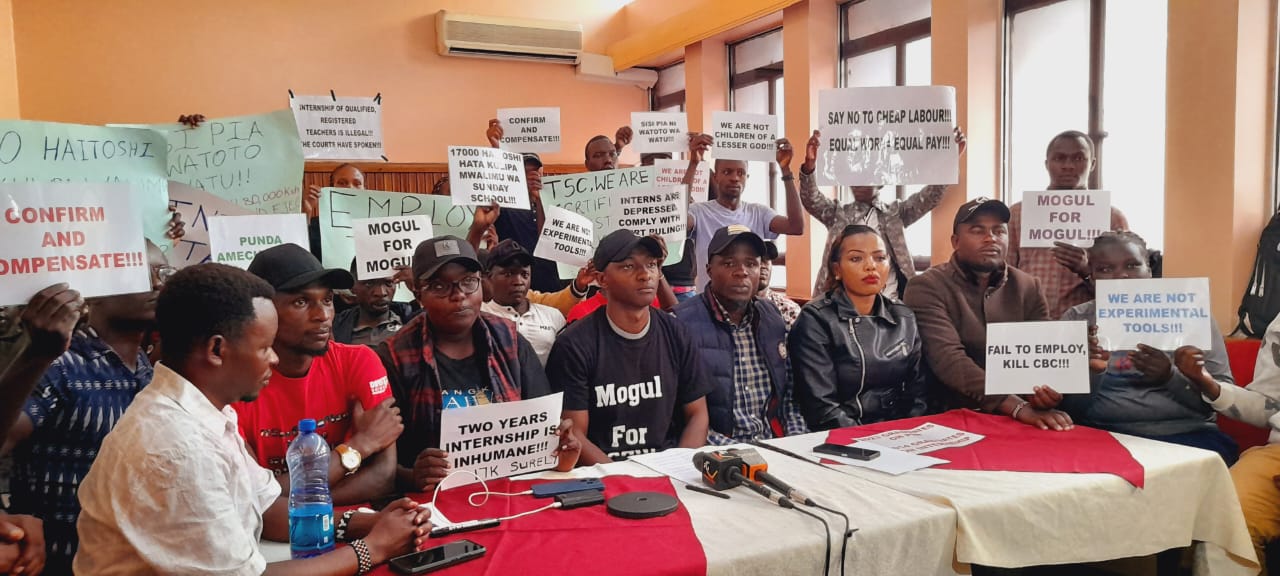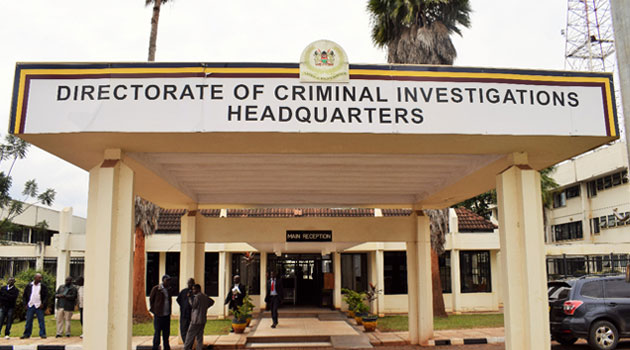Intern teachers warn they will not resume duties in January without permanent status

The tutors said their one-year agreements with the Ministry of Education were meant as a transition into permanent employment, arguing that their low pay under the internship scheme is discriminatory and unsustainable.
Teachers hired on internship terms in junior secondary schools across Nairobi have demanded immediate confirmation to permanent and pensionable positions ahead of the expiry of their one-year contracts on December 31, warning that they will not report back in January if the government fails to act.
The tutors said their one-year agreements with the Ministry of Education were meant as a transition into permanent employment, arguing that their low pay under the internship scheme is discriminatory and unsustainable.
More To Read
- TSC extends junior school internship contracts by another year despite growing unrest
- TSC announces recruitment of 9,159 teachers nationwide
- Senators demand permanent jobs for 20,000 junior secondary intern teachers
- Ruto announces recruitment of 24,000 more teachers by January to ease national shortage
- KUPPET flags stalled promotions, internship contracts for teachers
- World Teachers’ Day 2025: UNESCO warns poor support systems are driving teachers out of the profession
“We will not renew our contracts. If we are not confirmed, we will not resume duties next year. Let’s see how STEM will be taught,” Abraham Odondi, a junior secondary school teacher from Embakasi said.
He added that prolonged contract employment has denied interns the benefits enjoyed by permanent teachers.
“We are teachers just like any other. We also want house allowance and medical cover, which the contract does not provide,” Odondi said.
“Some of us have young families depending on us, and Sh17,000 is not enough to keep things afloat.”
The teachers noted that Sh7.2 billion had already been allocated to the Teachers Service Commission (TSC) for absorption of interns. Their demands received backing from the Kenya Union of Post-Primary Education Teachers (KUPPET) Kilifi branch.
“Our contracts were for one year, which is ending. The TSC should confirm these teachers immediately into permanent and pensionable positions,” KUPPET Kilifi Secretary, Mogere Caleb, said.
He urged compliance with a recent court directive abolishing the teacher internship model.
“Intern teachers face financial hardships. Sh17,000 is insufficient. Permanent employment will offer dignity, stability, and alleviate their challenges,” Mogere said.
He also warned that delays in hiring would further strain the education sector amid a nationwide shortage of secondary school teachers.
President William Ruto has previously assured that junior school interns will transition to permanent and pensionable terms after two years. While State House maintains that the internship strategy is intended to fill teacher gaps, the announcement has exposed policy inconsistencies and growing institutional contradictions in the Competency-Based Education (CBE) system.
Ruto, who spoke at Kitui State Lodge last week, sought to address the concerns from the 20,000 interns who have repeatedly raised concerns over exploitation, low pay and uncertainty.
Treasury CS John Mbadi recently told MPs that funds had been set aside to hire interns on permanent terms by January 2026. However, Education CS Julius Ogamba gave a different message, warning that internships could be extended beyond 2025 without additional resources.
President Ruto said the teacher shortage once stood at 110,000 and pledged that his administration would hire 100,000 by early next year. TSC statistics, however, indicate a deficit of 72,000 junior school teachers, nearly half the staffing requirements for Grades 7–9. The commission has deployed 83,129 teachers, while plans are underway to recruit 24,000 interns in January to replace those exiting the service. Yet, shortages remain substantial.
Intern teachers earn less than Sh18,000 a month after deductions but handle the same workload as permanent teachers, including lesson planning, marking, classroom management and extracurricular duties. Labour unions and teacher associations argue that this constitutes institutionalised exploitation.
The Kenya Junior School Teachers Association (KEJUSTA) has labelled the internship programme illegal, citing a court ruling that the model violates labour standards. Kejusta Chairperson James Odhiambo termed the scheme “inhumane” and indicated plans to file a new case.
“The President is not the Cabinet Secretary or the TSC Chief Executive Officer. He should not be handling everything. Interns are frustrated by his declaration. We want this programme done away with and will head back to court,” Odhiambo said.
He added that interns were initially promised a shorter transition period before confirmation, which remains unfulfilled.
President Ruto defended the internship programme as a way to gradually absorb unemployed teachers, citing over 300,000 trained teachers currently outside formal employment.
“That is why we introduced an internship. We did so with the assurance that after serving for two years, the interns will be confirmed without negotiations. I assure interns that they will be automatically absorbed after two years. That is our plan,” he said.
Critics warn that limiting absorption strictly to two years could leave the backlog unresolved, particularly with a growing population and limited funds. While the government has invested in classroom infrastructure through NG-CDF, interns nearing the end of their contracts feel betrayed, viewing the mass internship approach as unsustainable.
“Unless the state ends the contradictions, funds its commitments and treats teachers as partners rather than stop-gap labour, junior school could become the Achilles’ heel of the CBE transition,” Odhiambo said.
Top Stories Today














































